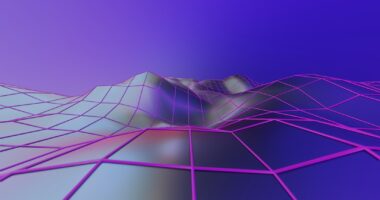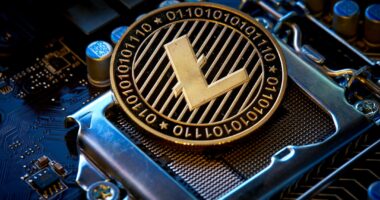Ethereum is a decentralized platform that enables developers to build and deploy smart contracts and decentralized applications (DApps). It is based on blockchain technology, similar to Bitcoin, but with a focus on enabling developers to create and deploy smart contracts. These smart contracts are self-executing contracts with the terms of the agreement directly written into code. Ethereum also introduced the concept of decentralized autonomous organizations (DAOs), which are entities that operate without centralized control and are governed by the consensus of its members.
DAOs are a revolutionary concept in the world of decentralized finance and governance. They are essentially organizations that are run by code, rather than by people. This means that decisions within a DAO are made based on the rules and protocols encoded in smart contracts, rather than by a central authority. This has the potential to revolutionize the way organizations are run, as it eliminates the need for traditional hierarchical structures and allows for more transparent and democratic decision-making processes.
What is a DAO and How Does it Work on the Ethereum Network?
A DAO is an organization that is governed by code and operates on a decentralized network, such as the Ethereum blockchain. It is essentially a set of smart contracts that define the rules and protocols for decision-making and governance within the organization. Members of a DAO can participate in decision-making by submitting proposals and voting on them, with the outcome of the vote being executed automatically by the smart contracts.
In a DAO, members can also contribute funds or resources to the organization in exchange for tokens or voting rights. These tokens represent a stake in the organization and give members the ability to participate in governance and decision-making processes. The rules for how these tokens are distributed and used are defined in the smart contracts that govern the DAO.
The Role of Smart Contracts in DAOs on the Ethereum Network
Smart contracts play a crucial role in the functioning of DAOs on the Ethereum network. These self-executing contracts are used to define the rules and protocols for decision-making, governance, and resource allocation within a DAO. They are written in code and are deployed on the Ethereum blockchain, where they can be executed automatically without the need for intermediaries.
Smart contracts enable DAOs to operate in a transparent and trustless manner, as the rules for how the organization operates are encoded in the contracts and cannot be changed without the consensus of its members. This eliminates the need for traditional legal agreements and intermediaries, as the code itself enforces the rules and protocols of the organization.
Governance and Decision Making in a DAO on the Ethereum Network
Governance and decision-making in a DAO on the Ethereum network are based on the principles of transparency, democracy, and decentralization. Members of a DAO can participate in decision-making by submitting proposals and voting on them using their tokens. The outcome of the vote is then executed automatically by the smart contracts that govern the organization.
This system of governance allows for more transparent and democratic decision-making processes, as all members have an equal opportunity to participate and have their voices heard. It also eliminates the need for centralized authorities or intermediaries, as decisions are made based on the consensus of the members and executed automatically by the smart contracts.
Funding and Investment Mechanisms in a DAO on the Ethereum Network
Funding and investment mechanisms in a DAO on the Ethereum network are based on the principles of tokenization and decentralized finance. Members of a DAO can contribute funds or resources to the organization in exchange for tokens, which represent a stake in the organization and give them voting rights and other privileges.
These tokens can also be used to participate in investment opportunities or to receive dividends or rewards from the organization’s activities. The rules for how these tokens are distributed and used are defined in the smart contracts that govern the DAO, ensuring that all transactions are executed transparently and without the need for intermediaries.
Security and Risks Associated with DAOs on the Ethereum Network

While DAOs offer many benefits, they also come with security risks and challenges. One of the main risks associated with DAOs is the potential for vulnerabilities in smart contracts, which could be exploited by malicious actors to steal funds or disrupt the organization’s operations.
Another risk is the potential for governance attacks, where malicious actors could manipulate voting processes or exploit loopholes in governance mechanisms to gain control of the organization. Additionally, there is also a risk of regulatory challenges, as DAOs operate in a legal gray area and may face scrutiny from regulators.
To mitigate these risks, it is important for DAOs to conduct thorough security audits of their smart contracts and to implement robust governance mechanisms to prevent attacks or manipulation. It is also important for members of a DAO to be vigilant and to actively participate in governance processes to ensure the security and integrity of the organization.
The Future of DAOs on the Ethereum Network and Their Impact on the Crypto Industry
The future of DAOs on the Ethereum network is promising, as they have the potential to revolutionize the way organizations are run and to democratize decision-making processes. As blockchain technology continues to evolve and mature, we can expect to see an increase in the adoption of DAOs across various industries, including finance, governance, and supply chain management.
The impact of DAOs on the crypto industry is also significant, as they represent a new paradigm for decentralized finance and governance. They have the potential to disrupt traditional hierarchical structures and to enable more transparent, efficient, and democratic organizations. As such, we can expect to see an increase in investment and innovation in this space, as developers and entrepreneurs seek to leverage the potential of DAOs to create new business models and organizational structures.
In conclusion, DAOs are an exciting development in the world of decentralized finance and governance, with the potential to revolutionize the way organizations are run. They operate on the principles of transparency, democracy, and decentralization, using smart contracts to define rules for decision-making, governance, funding, and investment. While they come with security risks and challenges, their impact on the crypto industry is significant, with promising potential for innovation and disruption across various sectors. As blockchain technology continues to evolve, we can expect to see an increase in adoption and investment in DAOs, as they continue to shape the future of decentralized organizations.
FAQs
What is a DAO?
A DAO, or Decentralized Autonomous Organization, is an organization that is run by smart contracts on a blockchain, such as Ethereum. It operates without a central authority and is governed by its members through a consensus mechanism.
How does a DAO work on the Ethereum network?
A DAO on the Ethereum network operates through smart contracts, which are self-executing contracts with the terms of the agreement directly written into code. Members of the DAO can vote on proposals and decisions using their tokens, and the smart contracts automatically execute the outcome of the vote.
What are the benefits of using a DAO on the Ethereum network?
Using a DAO on the Ethereum network provides transparency, security, and decentralization. It allows for trustless interactions and decision-making processes, as well as the ability to automate certain governance functions.
What are some examples of DAOs on the Ethereum network?
Some examples of DAOs on the Ethereum network include MakerDAO, which governs the stablecoin DAI, and MolochDAO, which funds Ethereum development projects. These DAOs demonstrate the diverse range of applications for decentralized governance on the Ethereum network.
What are the potential risks of using a DAO on the Ethereum network?
Some potential risks of using a DAO on the Ethereum network include smart contract vulnerabilities, security breaches, and governance disputes. It is important for participants to thoroughly understand the risks and potential consequences before engaging with a DAO.





